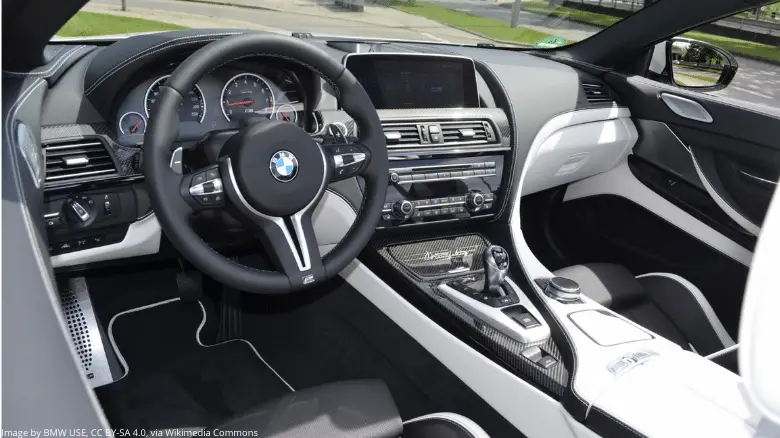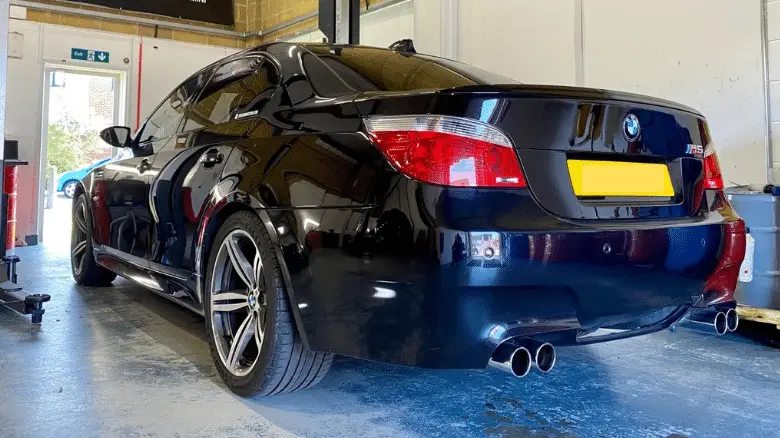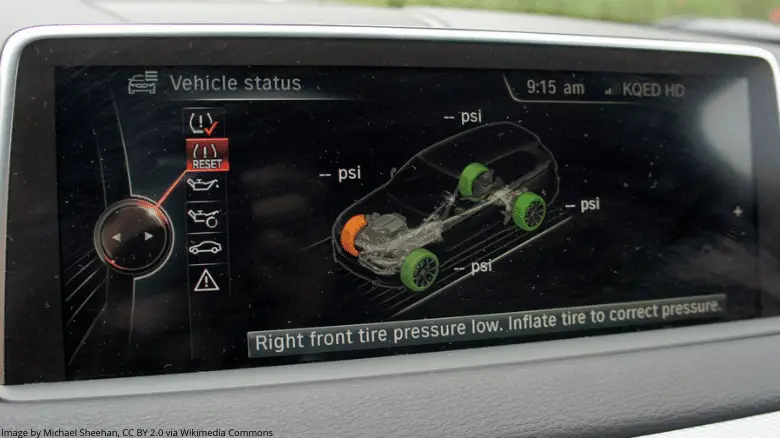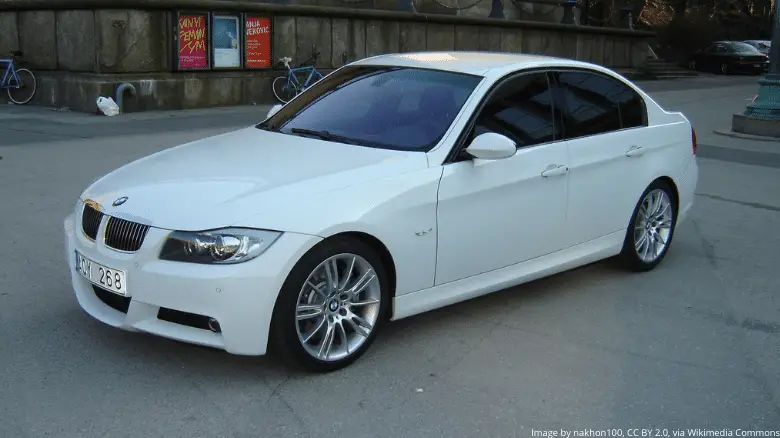Are BMWs Unreliable? (The Truth Revealed)
Table of Contents
Table of Contents
Whenever premium and luxury vehicles are discussed, Germans are always at the top of the list. Having established itself as a premium automaker for almost a century, BMW has long been the top choice for luxury car consumers and auto enthusiasts.
The Bavarian automaker has not always had a smooth path to success. Despite its luxurious interiors, premium quality, and the ultimate driving experience it provides, BMW’s cars have been notorious for reliability issues.
So, are BMWs unreliable?
Based on consumer reports and reliability studies, BMWs are considered unreliable when compared against the average car. These cars require more maintenance than most and cost more to fix when they do go wrong, so the unreliability is often due to owner neglect.
When the scheduled maintenance is carried out correctly, BMW reliability improves dramatically.
Whether it’s a myth or an undeniable reality, let’s understand why BMWs are considered unreliable, how they fare against their competitors, and what the most common reliability issues are in BMW cars.
Are BMW Vehicles Truly Unreliable? Debunking the Myth
To answer this question, we have to understand that BMWs are premium vehicles that are manufactured using state-of-the-art manufacturing technology and top-quality raw materials.

These cars are loaded with technology, and require top-notch maintenance and servicing to stay in top shape.
The stats show that in general, BMWs are not as reliable as their Japanese counterparts. But based on the history and overall ownership experience of the majority of consumers, BMWs can be regarded as reasonably reliable when cared for correctly.
Although BMWs can suffer from a number of problems, including manufacturing faults and breakdowns, the manufacturer is always considerate enough to launch official recalls and factory repairs to look after their customers.
Unlike Japanese cars, if BMWs are not maintained strictly according to official maintenance schedules, they can become a headache to own and cost an exuberantly high amount to fix and repair.
Not only that, but BMWs can be challenging to work on yourself unless you’re extremely experienced, so a highly skilled BMW specialist will often be required.
BMW M Division – The Trouble Maker?
Since the early 70s, a specialized motorsport department among the ranks of BMW has been creating performance versions of their sedans; the popular BMW M division.

These high-performance cars have always been admired by enthusiasts and established a reputation for themselves. Immense power, sharp handling, precise gear shifts, and ultimate traction; these qualities have always been the USP of BMW M cars.
At the same time, these cars suffered from frequent manufacturing faults and on-road failures as well. Although mostly due to aggressive usage on track and the negligence of the owners, generally, M division cars have had too many mechanical problems over the years.
Most common among these being transmission issues, VANOS complications, and suspension problems, along with a variety of different engine issues dependent on model.
Because of this, BMW had to suffer a blow to its reputation, but many M car owners accept this as part and parcel of owning such a high-performance vehicle.
How Often Does a BMW Need Repairs?
Like any other piece of machinery, a car can break down anytime and require fixing. BMW is no exception and its cars are known for some reliability issues that need professional repairs.
According to Repair Pal, a reputable automotive data collection firm, a BMW needs to be fixed an average of 1 time a year.
In contrast, an average car requires fixing 0.5 times a year. Although this might seem like a small figure, it is double in comparison.
Despite this, if a BMW vehicle is serviced according to the scheduled timeline, lubricants and filters are replaced in a timely manner, transmission and suspension components are serviced regularly, and it doesn’t get involved in a major accident, it can easily survive 250,000 miles without breaking a sweat.
How Much Does It Cost to Repair a BMW?
BMW is a premium automaker that sells luxury vehicles at higher costs, in contrast to average car manufacturers. This is mainly because it spends a lot of money on R&D to develop new technologies, uses premium materials and parts, and adds a bespoke touch to its vehicles.

A BMW on average costs $1,100 in repairs per year, whereas the average cost for other vehicles is $400-500. Just like the maintenance, the BMW repairs are exuberantly expensive as well.
What are the Most Common Causes of BMW’s Unreliability?
There are some known faults in BMW that occur frequently in the majority of its vehicles and require expensive repairs. These problems include;
1- Coolant System Issues
BMW coolant system issues often crop up at around 100,000 miles. Specifically, a faulty water pump that fails to circulate coolant through the engine properly, leads to frequent overheating and radiator damage.
2- Faulty Oil Filter Gasket
If you observe oil leaking or a pool of black fluid on the ground after driving your BMW, it’s likely that the oil filter gasket has failed, allowing engine oil to leak. The gasket joining the oil filter to the engine weakens with time, around 125,000 miles, and this can result in significant engine damage owing to prolonged overheating and low oil levels.
3- Electronic Issues

Older BMWs are also susceptible to electrical system failures. This occurs as a result of repeated use and wears over time, resulting in deterioration. A blown fuse box, which powers the majority of equipment, such as cluster gauges and taillights, is the most common electrical failure. Other issues include broken window actuators and air conditioning.
4- Faulty Fuel Pump
In a BMW with over 125,000 miles, the high-pressure fuel pump has been known to fail. Due to a lack of fuel flow into the cylinders, owners notice slow acceleration, minimal pick-up power, and even the engine being entirely unresponsive at times.
5- VANOS System Issues
The variable valve timing system in a BMW engine gives excellent performance with efficiency, but it is susceptible to VANOS system faults, sometimes known as “VANOS Rattle.” This is caused by problems with the VANOS seal and valves, as well as excessive oil leakage from regularly moving elements. It’s also a highly expensive problem to solve, but it can be prevented with careful maintenance.
How Much Does It Cost to Fix These Issues?
The table below shows a rough estimate of how much it can cost to fix these issues, although it will of course depend on the circumstance and what work needs to be carried out.
| Fault | Cost |
| Coolant system | $700-$800 |
| Faulty oil filter gasket | $500-$800 |
| Electronic issues | $200-$1200 |
| Faulty fuel pump | $800-$1000 |
| VANOS system issues | $750-$900 |
Reliability – BMW vs Other Car Brands
BMW faces tough competition in the luxury car segment, especially from its fellow car manufacturers in Germany, and some Japanese automakers. Let’s understand how it fares in this department;
1- BMW vs Audi
In this battle, Audi comes out on top, particularly due to better performance and overall reliability. Although the top 3 luxury German automakers are not particularly reliable, among the three, Audi performs better.
This is helped by slightly cheaper repairs and maintenance, which is partly due to sharing of parts with Volkswagen and fewer manufacturing faults. According to consumer reports, Audi ranks higher than BMW in reliability and overall ownership experience, despite Audi still scoring poorly in reliability studies.

2- BMW vs Mercedes
This is a close call but overall, Mercedes is more reliable than BMW. It is generally due to fewer reported faults and breakdowns over the course of ownership, but on the other hand, Mercedes cars are more expensive to fix if a problem occurs. In terms of general reliability, Mercedes ranks higher than BMW.
3- BMW vs Lexus
There is no comparison here, Lexus is one of the most reliable car brands in the world. Coming from the Toyota family, Lexus vehicles are particularly hard to beat in terms of dependability and are highly durable.
In most tests and rankings, Lexus cars are often on top and report the least number of manufacturing faults or reliability issues. Among all the luxury car brands, Lexus wins the reliability battle hands-down.
4- BMW vs Jaguar
Jaguar and Land Rover are quite notorious for frequent breakdowns and are known to be very problematic. BMW cars are much better in terms of reliability when compared to Jaguar vehicles and rank much higher in a number of different reliability tests and reports.
Least Reliable BMWs
Although it would be wise to share a list of reliable BMW vehicles, it is better to talk about ones that are notorious for reliability problems and should be avoided.
1 – BMW X5 (F15)

The most famous BMW SUV also happens to be the most troublesome. The F15 X5 is one of the least dependable BMWs, especially with high mileage. They suffer from problems related to the engine, fuel pump, and turbocharger.
And if you opt for an F16 X6 as an alternative, you may be out of luck as they’re based on the same chassis and use the same engines.
If you’re worried about reliability, it it may be best to avoid the X5 and look for better alternatives.
2 – BMW M3 (E46)

The E46 M3, while an icon of automotive engineering and one of the most popular BMW M models ever, is also notoriously unreliable. Sub-frame troubles, VANOS issues, electrical glitches, and gearbox faults were all on the list of complaints. Repair expenses, no matter how little, will be prohibitively expensive.
3- BMW 335i / 535i / 135i

The BMW N54 engine was fitted to a number of ’35’ models across the range in the late 2000s and early 2010s. This engine is notorious for its unreliability, including turbochargers failing, VANOS issues, fuel injector leaks, and coolant leaks to name just a few of the issues it faced.
Although it was a powerful engine, it was far too troublesome for many owners and ended up giving BMW a black eye in terms of reliability.
Final thoughts
To sum it up, BMWs are not the most reliable cars but they are far from the least reliable ones. There have been many reports of manufacturing faults and breakdowns but overall, they have improved in recent years.
It is best to do your research before buying a used BMW and be aware of potential problems that may occur. With proper maintenance and care, a BMW can be a dependable and great car to own.
ABOUT THE AUTHOR
Adam Chinn writes about the intersecting worlds of classic cars, driving pleasure, and smart investment strategies. Starting his journey at 26, he’s proven that one doesn’t need to be wealthy to begin investing in classic cars.
Adam’s insights have been recognized on platforms such as MoneyInc, Swagger Magazine, and Top Speed.




2 thoughts on “Are BMWs Unreliable? (The Truth Revealed)”
Hey Adam…
Good Content..
We are looking at getting a BMW, this article is helpful
Thanks
Bottom line is called bad quality.